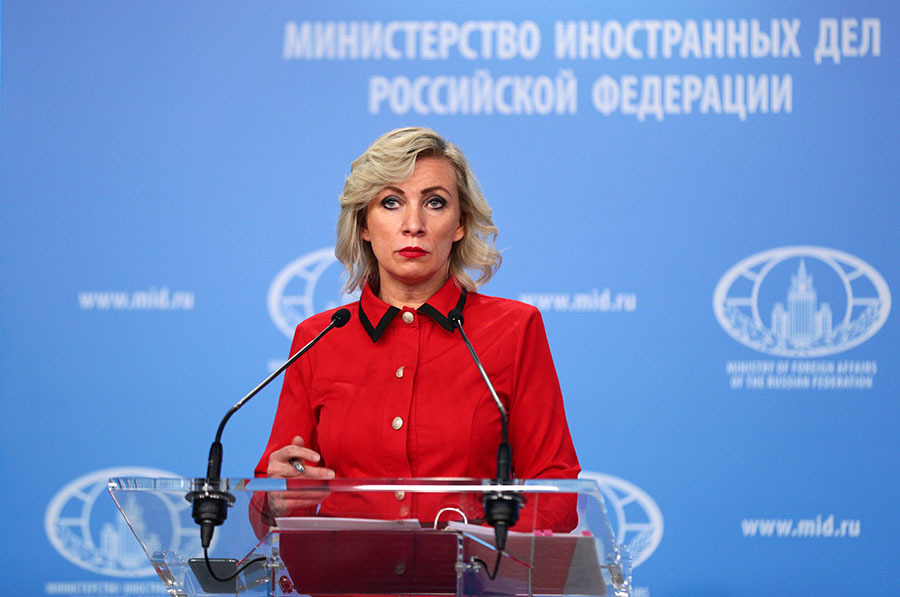The Prosecutor General's Office of Russia received a response from Germany to inquiries regarding Alexei Navalny, but in this document Berlin did not provide the information requested by Moscow, said the official representative of the department, Andrei Ivanov.
He recalled that the Russian side sent to the Federal Ministry of Justice of the Federal Republic of Germany four requests for legal assistance based on the materials of the check that the Ministry of Internal Affairs is conducting on the fact of the blogger's hospitalization.
In particular, information was requested about the "poisonous substance", traces of which were allegedly found by German specialists.
However, Berlin responded by asking for further clarification on the ongoing investigation.
“At the same time, no substantive explanation has been given to any of the questions raised earlier by the Russian side,” said Ivanov.
The representative of the supervisory authority noted that the German side actually deprives the Russian competent authorities of the opportunity to establish the circumstances of the incident.
The situation with the response to Russian inquiries was commented on by the official representative of the Ministry of Foreign Affairs Maria Zakharova, who stated that the document received confirms Berlin's unwillingness and unwillingness to constructively interact in the Navalny case.
“Instead of answering the extremely specific questions posed by the Russian side in the four aforementioned requests, the Federal Office of Justice of the Federal Republic of Germany, without informing absolutely nothing, only puts forward counter questions and confirms that the German authorities refuse to provide any material evidence of Navalny's poisoning with the notorious poison“ Novichok ", Including his bioassays and the results of their analyzes," Zakharova noted.
Official representative of the Ministry of Foreign Affairs of Russia Maria Zakharova
RIA News
© Russian Foreign Ministry
She drew attention to the fact that German law enforcement agencies took almost three months to "formulate this short reply", and also recalled that from the report of the Organization for the Prohibition of Chemical Weapons, at the request of the FRG, "all essential information was previously deleted."
The Foreign Ministry spokesman also recommended that the German government "refrain from further artificial politicization of the situation around the Russian blogger."
Later, the diplomatic department issued an official statement in which it emphasized the synchronization of actions and instant peremptory decisions "without a hint of an attempt to figure out what is happening" made by Western countries in the course of what happened.
“They can only testify to one thing: the health of a Russian blogger is, by and large, secondary.
And it is primary for the West to find another reason to continue anti-Russian attacks, ”the Foreign Ministry said.
“There is a“ mutual responsibility ”in the Euro-Atlantic performance with the involvement of the politically committed leadership of the once very authoritative and independent OZHO,” the ministry said, stressing that Berlin and other European capitals completely forget about international law when it comes to Russia.
The Foreign Ministry stressed that what is happening is reminiscent of an amateurishly staged performance, the main idea of which is another sanctions shot at Russia.
In turn, Moscow, the department reminded, does not accept any "rules" imposed on it to the detriment of its national sovereignty and international law.
Meanwhile, the transport department of the Ministry of Internal Affairs of Russia for the Siberian Federal District said that after Navalny was hospitalized, his wife Yulia told Russian doctors that the blogger could become unwell if he followed a number of diets.
"Navalny's wife told the health workers that her husband limited himself to food, for three to five days he was worried about discomfort after eating, the food was irregular," the department said.
We will remind, on October 13, the heads of the foreign ministries of the countries of "united Europe" agreed on the imposition of sanctions against Russia due to the situation around Alexei Navalny.
Later, the website of the Official Journal of the European Union published a decision to impose sanctions against a number of Russian citizens in connection with the blogger's case.
Press Secretary of the Russian President Dmitry Peskov called this decision a deliberate unfriendly step towards Russia and added that Moscow will analyze the situation and will act in accordance with its own interests.
Alexei Navalny became ill on August 20 on board a plane flying from Tomsk to Moscow.
The liner urgently landed in Omsk, where the blogger was hospitalized in a local hospital.
At the insistence of his relatives, he was transferred to the Berlin clinic "Charite".
A few days later, the FRG authorities announced that Navalny had allegedly been poisoned with a nerve agent from the Novichok group.
At the same time, Russian doctors have repeatedly indicated that the tests carried out did not reveal any traces of toxic substances in the patient's body.

